|
I remember checking out videos from the library and after finishing them removing the video from the VCR and putting them in the rewinder. To this day, I can't hear, "Be kind" without thinking rewind. Today is World Kindness Day according to the Facebook posts and my morning greeting from Alexa. I am tempted to research how long World Kindness Day has been a thing, who started it, and who is celebrating it, but instead, I’m going to refrain from that extraneous research and go with it. On my recent trip to Seneca Falls, New York, I learned a great deal about kindness and the great impact ordinary individuals can have on the world around them. We arrived in Seneca Falls after sunset. The small downtown area was decorated for Christmas, a gentle snow was falling, and the church bells were ringing out “How Firm a Foundation.” I told my sister that I was reminded of Bedford Falls, the town from It’s a Wonderful Life and she immediately agreed. As we were checking in, the hotel clerk gave us a list of area attractions including the It’s a Wonderful Life Museum. He explained that Seneca Falls is the town that Bedford Falls is based on. Our days there included a visit to the Women’s Rights Historical Park, Elizabeth Caddy Stanton’s home, William Seward’s home, and Harriet Tubman National Historic Park. In each of these places, we noted the influence of major figures like Anthony, Stanton, Seward, and Tubman, but we also noticed the courage, conviction, and compassion of those whose names will most likely never be included in a national park or museum. There were countless women who stood up for the rights of others. As I previously wrote, the subject of women’s rights can be controversial, but here we are talking about rights such as property ownership and the right to remove themselves and their children from a dangerous and abusive husband. Women who were not destitute or in danger took upon them the fight that the others in those situations didn’t have the ability to fight. William Seward was a remarkable man who served with Lincoln as Secretary of State but was responsible for doing so much more. One act stood out as particularly significant during our visit. He sold land to Harriet Tubman including a home that she and her parents lived in after their escape from enslavement. This was after the Fugitive Slave Act and before the Emancipation Proclamation so his action was in direct defiance of federal law, but he believed that it was the right thing to do. Harriet Tubman’s life was full of her kindness to others despite being enslaved and mistreated. Often the word kindness invokes a soft-spoken, gentle manner, but Harriet was kind in a powerful way. She went back into the South thirteen times to rescue her people, ignoring her own safety. She also led troops into combat and freed 750 men, women, and children during a US military action. Retirement was anything but restful. She opened a home for the elderly on her land because the other home for the elderly in Auburn was for whites only. Her home was for everyone. Harriet Tubman exemplified kindness in action. Our last stop during the trip was at the It’s a Wonderful Life Museum. There we learned the beautiful story behind the movie. Frank Capra stopped in the town after reading the short story which would become the movie. There, while receiving a hair cut from an Italian immigrant, he heard the story of Antonio Varacalli. In 1917, Antonio was a young man working to save up money to bring his family over from war-torn Italy. He watched a woman jump off the bridge in an attempt to commit suicide and jumped in to save her. He succeeded in saving her but lost his life in the process. The town rallied together and collected enough to bring his family to the area. Capra changed the ending of the movie to include the town rallying around George and set the movie in a place that looked like Antonio’s town. Acts of kindness can be small or large. They can be quiet or they can be bold. This “World Kindness Day” rewind your thoughts to some of the people who have influenced your life. How has their influence changed you? As Clarence observed, “Strange, isn't it? Each man's life touches so many other lives. When he isn't around he leaves an awful hole, doesn't he?” Today, don’t leave a hole. Get in there and influence someone. Maybe a child, maybe the person behind you in line at Starbucks, maybe a future generation. Capra modeled the bridge in the movie after this bridge in Seneca Falls.
0 Comments
This post was published at exactly 11:00 Paris time which is 5:00 am here in Michigan. That is the exact time 100 years ago when men lay down their arms and the world celebrated the end of the War to End All Wars. The celebrations were massive as people felt hope and peace that had been missing for the previous four years. They longed for a period of peace and rest after years of anxiety and doubt. 100 ago less than 35% of the American population had electric lighting. Radio was not yet a mode of communication and people were wondering if cars could ever replace horses. Their lives seem so foreign to us, but in truth we have so much in common. We hate to see the hatred that tears our country apart. We fret and pray while watching fire destroy homes and land. We fear terror and violence. So much has changed and yet, so much hasn't. Before the war, people had faith in humanity and the hope that through science and technology the world could see perfection. The war shattered that illusion. Men shot and killed each other over yards of land. They launched gas attacks and watched as men gagged and suffocated to death. After the war, many suffered from Shell Shock, or what we would call PTSD, but never received any kind of care or treatment. The world embraced the "Eat, drink, and be merry for tomorrow we die!" because there was no point to life. They lost hope. They lost faith. With all the reading I have been doing about World War I, it has been really difficult not to get depressed after reading about the atrocities and tragedies. For example - Look at the photo above. Look at those happy joyful people. In 1919, a pandemic flu will come through and 1/3 of the world's population becomes infected and another 50 million people will die. 50 million. What happened to all that hope? How can you find hope in the midst of that? But then a verse that we usually associate with Christmas came to mind and I have been meditating on it ever since. Isaiah 9:6, "For to us a child is born, to us a son is given, and the government will be on his shoulders. And he will be called Wonderful Counselor, Mighty God, Everlasting Father, Prince of Peace." If that doesn't fill you with hope than truly nothing will. People do nice things sometimes and I love that, but I don't place my hope in people. They will always fail you, but rather my hope is in Christ. The future is coming when War will cease and we will finally know peace. The Prince of Peace will reign and death will be no more. Isn't that something worth celebrating? The poppy is the flower of remembrance. I owe a great debt of gratitude to the many men and women who have served and who are still serving in the military. Thank you for your service and the sacrifice. You sacrifice your comfort, your time, your family, and your lives to see that our nation is protected. Thank you. You are remembered and loved.
A young Jessie is at the top of this photo. They may have to sit still and not smile for the photos, but these were some wild and fun women, I'm sure! Jessie would have been about 20 years older by the time she wrote these letters. The solider is not Walter Hill, but Walter would have been outfitted like this and been similar in appearance. Tonight I'm finishing up transposing another letter. I just LOVE this eyewitness account of the war! I imagine Walter getting the letter and wondering, "Hmm, who could this be from?" then laughing with pleasure when he realizes that his old teacher took the time to write him. It seems as though they are completely out of touch, but she must have found him through a local organization. Teachers use the phrase "my kids" to refer to their students in the same way that parents do because they share a very special bond with their students. Clearly, Walter Hill was one of Jessie's kids. I've printed his words in gray and added some of my own thoughts in italicized blue. The wording is mostly his and some words were very difficult to decipher.  Burdocks -- Poor girl! Burdocks -- Poor girl! Dear Teacher, I received your letter and was very glad and also surprised to hear from you. You laughed at me about 2+2=3. Well, you want to do a little trading over here and you will find out that two + two equals as much as they can fool you into believing it is. I was awful glad to hear from you. I have to write to my friend nearly every day. She worries awful about us . . . and it is no use to worry as things will happen just the same no matter how much you worry. Things happening just the same is all well and good to say when you are living a comfortable suburban lifestyle, but this is quite the statement to read from someone who is writing from the trenches. This paragraph give you some insight into just what kind of teacher Jessie was. She took quite the forceful approach to classroom management. Tying kids up for whispering? She must have had a rough group! I guessed who wrote that letter just as soon as I got down to that 2+2. Do you remember the time you tied me all up in strips of cloths for whispering? Do you remember the time that man fell down stairs over across from the school and came down and smashed in the brook? I sure remember that Mrs. Harringan. We used to have some good times at that school. If my memory does not fail me I think I remember some thing you forgot to mention. Aren't you the teacher that laid me across a double desk and gave me "What Paddy gave the Drum"? SHE SPANKED HIM! Those were the happiest days. I must have shame a speaker man at that Peace Conference with the enemy of the cabbage patch. No idea what he's talking about here. Remember the time I put Burdocks in the girls hair and got a chance to do the toe dance all around the room with the aid of the teacher holding on to my ear? You are right on Uncle Sam would be proud of the boys that he has behind him. Of course I think more of the boys who volunteered but the other boys are a credit to their country. Some men were drafted while others signed up to serve. The best part of it all is the way the boys acted when they got orders to leave for France. We did not have the least idea where we were going. It would have done you good to see how willing and anxious they were to get started. You would think that they would worry about the submarines on the way over but it was just the opposite. Most of them were anxious to sight a sub so we could get a shot at it. The officers had a lot of trouble keeping them down and not to sing their heads off. We had setting up exercises every day and games, looking and a lot of singing. Picture this in your head. Isn't this fantastic? Soldiers, who are really just boys, singing and hoping to get a shot off at the enemy. They sound so young and optimistic. I imagine their harried, serious officers saying stuff like, "You there! Get off that railing! You there! Stop that racket!" It sure what a great sight. If you never have been across it would do you good to take the trip if you were not sea sick. I was sick and did not care for awhile if all the subs the Germans had got after us at once. Poor Walter, I can totally sympathize with him on this! It was a fair sight along the western shore in the harbor. We left to see the longer ships and at night to see the lights on the buildings. It has been worth a lot to me. I have not suffered as yet. Of course, there have been things I would not have refused like a nice big piece of pie and a glass of good milk. But war is what Sherman said it was and then some. William Tecumseh Sherman, a Union general in the Civil War, said, "War is hell." I can't tell if he's being modest and kindly keeping the gruesome details away from his teacher or if he truly hasn't see battle yet. He sounds optimistic, but to say that war is hell and then some is quite strong. I also love that he worded this so as to refrain from using the word hell. I remember the last time I saw you. If I am not mistaken I was with my friend. I would not be guilty of not speaking to my old school teacher. I may have changed in looks, but I guess there is just as much deviltry in me as ever. Oh Walter, you sound so much like someone I want to know! I bet there are a lot of my old classmates in service over here. You perhaps read in the papers about the way the Bosch have destroyed the forest trees in the land they have been forced to leave. They sure are a bum lot of soldiers to fight the way they do. Bosch, a slang term for rascal, is what the French called the Germans. While I am writing this there's a lice little Bosch Machine right over our little shanty. We have a visit every night from the Bosch. They have a habit of coming over about 7:30 to 8:30 and in the morning just before daylight. They dropped a couple bombs over in the field not far away the other night. Boys in our company have done their turn in the trenches and are in for a pass for a few days. We expect to be sent down South near to a Watering Place. I'm not sure why the W and P are capitalized here. He could be referencing a Dickensian term for a bar. I will be glad when we go. I will have to tell you of a sight that I saw in another town. There as a Bosch up in the air so high he looked like a little toy. One of the French machiners got after him and down he came head first. It was some sight. We went over and saw him after he landed. The machine was like kindling. I won't tell you about the fellows. If you know any fellows that are in the Aviation Service you can give them a lot of credit as they will use a lot of nerve in that job. There are so many things going through my mind after reading this. The naive curiosity. The interest in the crashed plane. The horror at the condition of the pilot's body. Below, I've included a recruitment poster for the Aviation Services. I am impressed by all those serving in the Air Force, but these brave men do deserve a lot of credit for their courage and bravery. Be sure to write, Mech. Walter Hill Kaiser Wilhelm II was the leader of Germany prior to and during the war. The following is a poem found among the WWI letters belonging to my family. A Google search showed that it was printed in a newspaper in 1918. It must have been copied and saved by either Jessie or Mildred, her daughter. I'm not sure why whoever copied it down thought it was so important, but they took the time to type it out and save it. Now 100 years later, I'm discovering and appreciating it's historical significance. The original text of the poem was found on the Somme battlefield in 1916 by Ernest Plaine, but the author is unknown. Whoever the author was, they clearly despised the Kaiser. The idea that the Kaiser and Satan were in league together shows a strong hatred on the part of the writer. As the poem goes on though, you can feel the shift from anger and hatred to pride in the American soldier and the sense justice they were fighting with. Studying things like this helps historians understand the mindset of those living at that time. Please read the poem below and notice the strong emotions it congers up. Note: I prefer to read poetry aloud. It helps me grasp the flow and sound the author intended.
I have always been interested in World War I. Usually, people rush over the first world war to get to the more popular and more easily understood second. I'm not sure what it is about World War I that grabs my attention and keeps it, but I find the stories captivating. The impact the war had on our culture is still deeply felt 100 years later. So that's where we are now. November 11, 2018, will mark the 100th anniversary of the armistice that ended the war. On that day there were great celebrations around the world. There was also sorrow in the countries that lost the war and that sorrow would only be compounded by the Treaty of Versailles. Last year, my family discovered a packet of letters that had been collected and saved by my Great, Great Aunt Jessie. She was a school teacher who wrote to her former students who were serving in the war. I've been working to transpose these letters so they can be easily read and studied. (Follow this link to find out more about Jessie and the read the first letter.) To commemorate this 100 year anniversary I am currently immersing myself in all things World War I. I am reading about the Red Baron, Lawrence of Arabia, Edith Cavell, Alvin York, and so many others. A few weeks ago I posted about my love of history. When I talk with people who dislike history, I usually perceive that they were taught it from the wrong perspective. I am concerned with the education of anyone that doesn't include a broad study of history because of what that study provides the learner. According to John Green, "The opportunity of studying history is the opportunity to experience empathy." Experiencing empathy for people in the past is what gets my mind racing and my heart pounding. Those people were real. They loved and lost, were hungry and full, they celebrated and mourned. They felt sore and didn't always want to get out of bed in the morning. They worried about their children and loved their friends. Yes, we are all different but we are also all so similar. My favorite kind of history is the history that tells the story of a shared human experience. By immersing myself in the war, I'm hoping to feel what it felt like to be there in the midst of the crowds celebrating the end of the war, anxious about when my loved ones would be returning home. Over the next few weeks, I will be sharing the text of the letters and poems that were in that packet of Jessie's as well as some posts based on my reading. I am also so excited to be given the opportunity to share information with the students at the school I graduated from and where Logan currently attends. I've got my presentation created and my outfit picked out. (I'm super psyched about the outfit; I'll explain why later.) Now I'm working on getting visuals and preparing a display. If you have any questions about the Great War, if you're looking for book recommendations, or if you would like to see the letters please let me know. I love photos like these because you can see so much personality and emotion. The man on the far right of the large group of men looks like quite a character. Contrast him with the purposeful slouch of the man closest to him. I adore the smile of the man on the far right in the group three. My guess is the man in the middle said something funny right before the camera snapped the photo and he lost it. Remove the uniforms and replace them with modern clothing and both of these photos would look totally normal. Men working together. Men posing and laughing together. This is the shared experience of being human.
This poem was written about 100 years ago. Poor young maid! I would probably endanger a loved one's life by knitting too. By Our Office Boy
A youngish maid with beautiful map-- She knit her beau a beanie cap. She waited till she found a chance, Then sent it to her beau in France. He put it on, out in the rain, And soon his head began to pain. It pained some more, alas, alack, And then his head began to crack. They found him there and thought him dead-- The beanie cap still on his head. With chisels then they pried it loose; The yarn she used, it had been punk; The beanie cap, how it had shrunk. The doctor says to tell his gal That he can leave the hospit-al Some time next fall, and well, perhaps, But he must shun all beanie caps. O maid, if you must do your bit, Go drive a truck, but please don't knit. 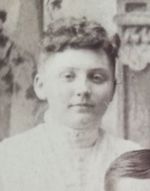 Jessie Dow 1887 Jessie Dow 1887 My very dear Aunt Jane was a research librarian at University of Massachusetts at Dartmouth. With the help of a few other family members she compiled a family history that is full of stories and photos. In that history there is a woman named Jessie Dow. She married into the family September 14, 1890, but her husband Ernest Victor Booth died August 7, 1891, less than a year after they married. That was all we knew about her until a few months ago. After my great Aunt Inez passed away, the family found a packet of letters that was labeled "Aunt Jessie WWI". Apparently Aunt Jessie was part of a group that encouraged the men fighting "over there" by writing and sending packages to boost morale. I was allowed the privilege of looking at this packet and attempting to make sense of what I discovered. There were some poems typed on thin velum. One of the poems says, "By our office boy" which made me think that she was part of a letter writing USO type group. The which were letters addressed to "Mrs. Jessie Booth, Dear Teacher" told about the war and the men's experience in France. So she was a school teacher who loved her students. She wrote them letters because she was concerned about them. This all sounds so familiar. Instantly I felt a connection with Aunt Jessie. With the help of another history loving friend we are transposing the letters which are difficult to read. Below is one of the letters. I've copied the words down verbatim to accurately represent the author. I can't figure out his first name. Check out the close up of his signature and comment with what you think it is. The longing for home and the misery he expresses is clear and connects me with this solider from 100 years ago. I don't know if he ever made it home to his "Dearest Little Mother," but I know that so many like him didn't. As you read I hope you connect with this brave solider who was not so different from you and me. On Active Service
with the American Expeditionary Force May 20, 1918 Mrs. Jessie Booth Dear Teacher, I received your most welcome letter to day. And was sure surprised to hear from you but it was a glad surprise to me. Well I can never forget the hours that I spent in school a long time ago. I wish that I knew then what I do now. I think that my life would been different. I am glad that I am doing my bit over hear. You sure did have me guessing on the writing all right. Well Mrs. Booth I have one of the Dearest Little Mother living and I hope to come back to her but if I don’t well all I can do is to meet her up above where they don’t have war. We have been on the go since February 5 and the Lord only knows how much longer we will be on the road and we have seen and been through a lot more than I ever expected to or thought that I would go through. But I am alive and well and feeling fine and am looking for a nother chance to get at the [Book] a gain. We made a good record the last time all though some of the boys fell to the Huns paid [iofer] one of ours. We are just getting nice summer weather hear for we have been up to knees in Mud the most of the time since coming over hear and the change is good for us. I hope your garden will come out fine for any one likes to see tho first one in good shape. Yes I am in the Infantry or as we are called Mud splashers. This the branch of the service that gets all the hard work and plenty of scrape to. I have a lot of friends in the service and I run in to them not and then. I meet Sgt Pirley Wells of the old Leo H last night and and a few more of the Montpelier boys. They are all looking fine and feeling good and longing to get at the Huns and get it over with. That little boy you used to know is some boy 5 ft 11 in and weighs 155 lbs and is brown and hard as a rock with a small bush up on the upper lip. All most a man. And only 30 years old. Some boy. I often look back to my school days and wish that I could go back to them but they are passed forever. How I wished that I had learned to play the organ when you tried to learn me. I will close for this time. I remain one of your Old scholars and will always respect and love you as one that tried to learn me the many things I had ought to know. So will say goodbye with Love to my Teacher, |
"A jack of all trades is a master of none, but oftentimes better than a master of one." Archives
May 2020
Categories
All
|
AdventuresGet in Touch |
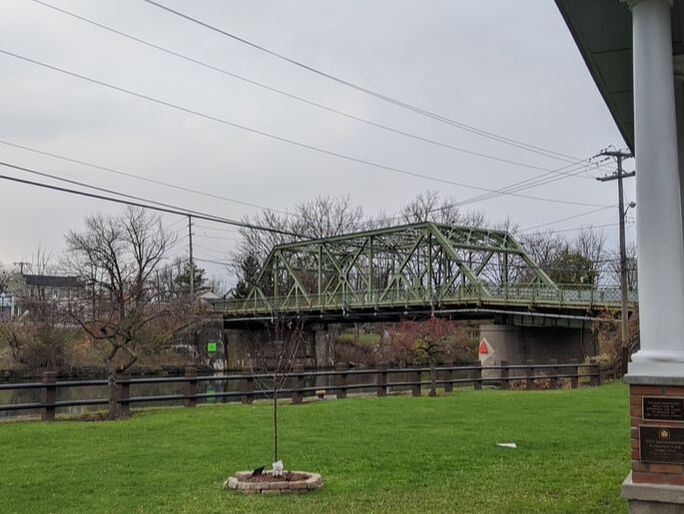
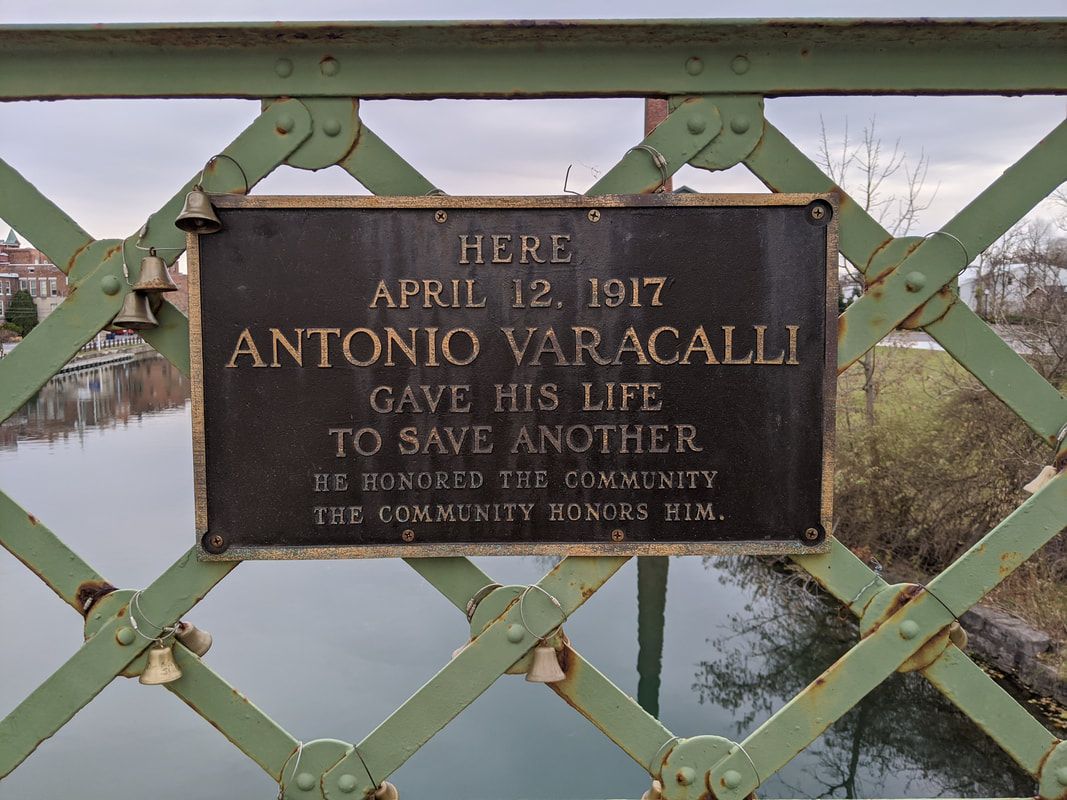
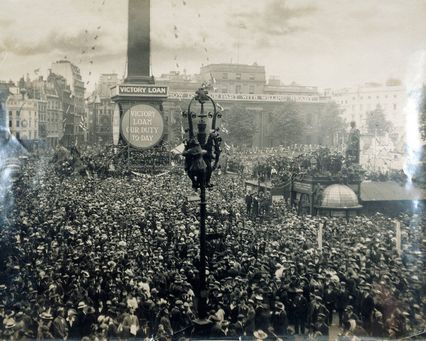

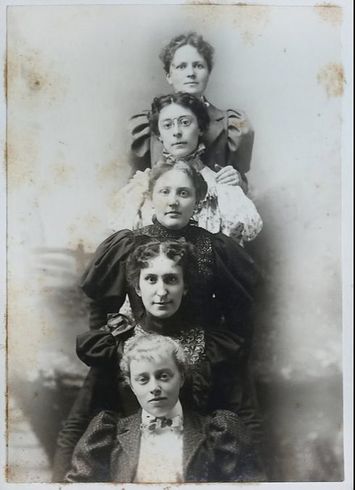
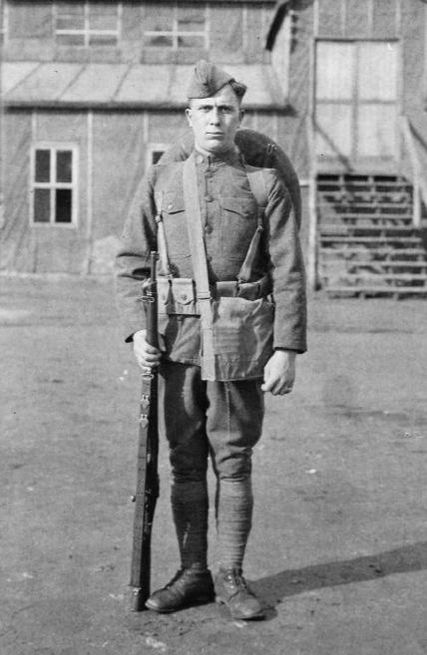
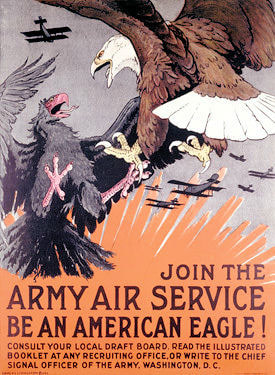
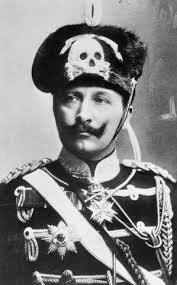
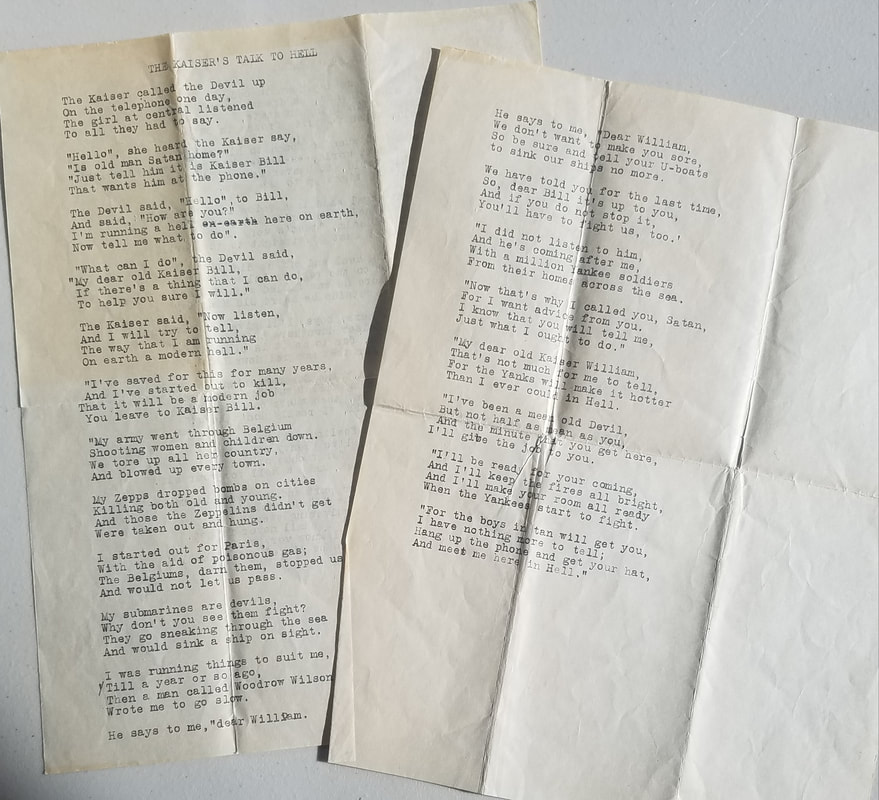
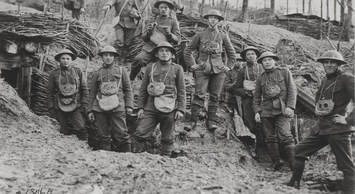
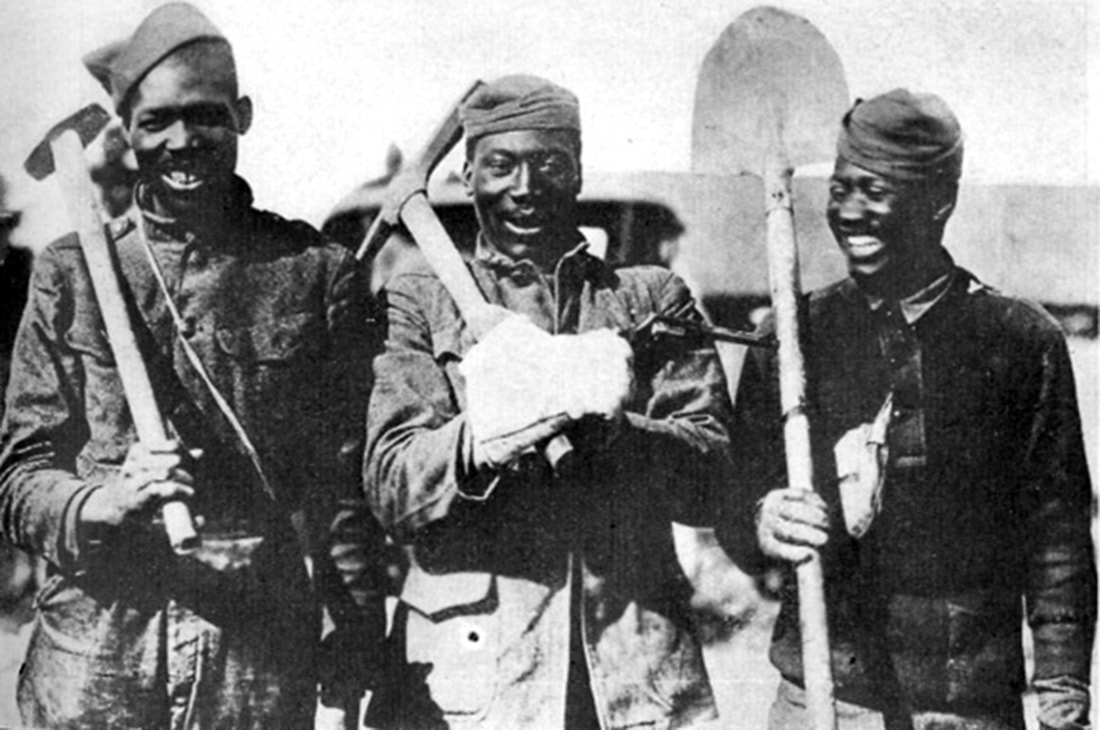
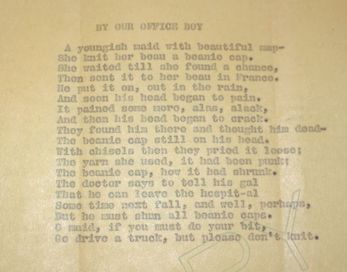

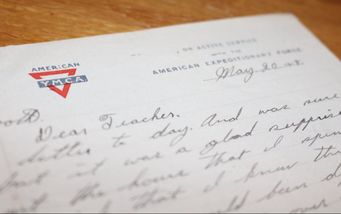

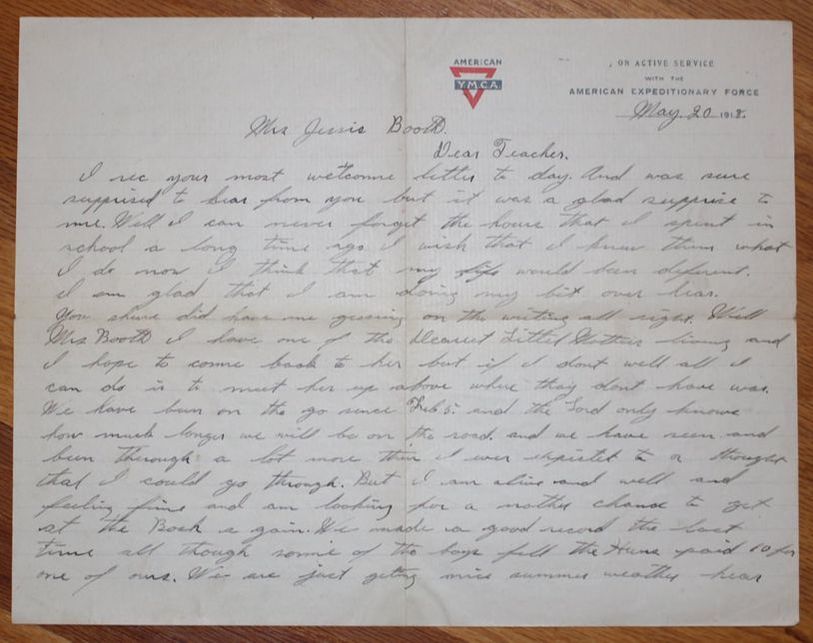
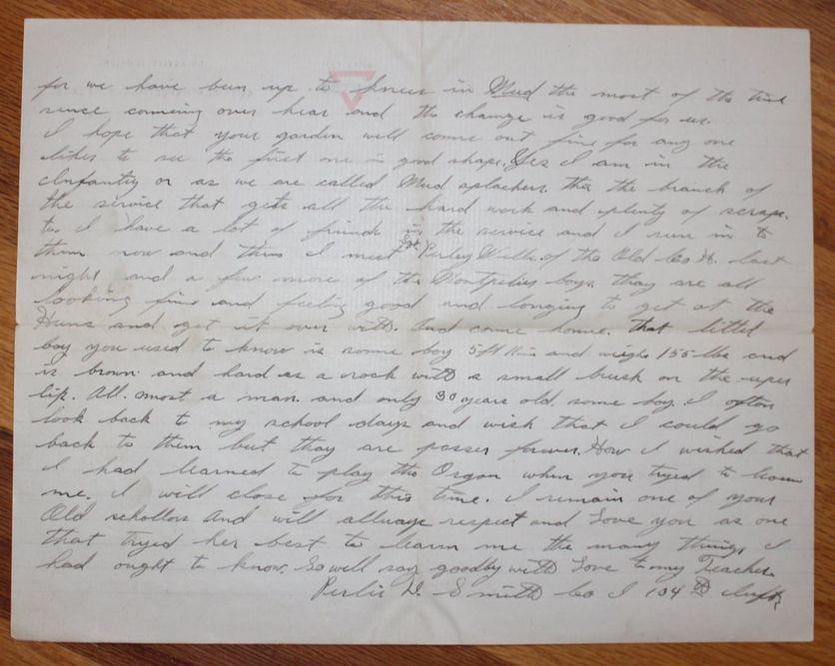
 RSS Feed
RSS Feed